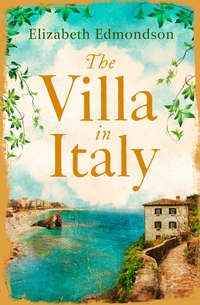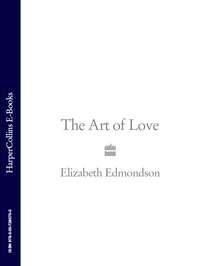
Полная версия
Voyage of Innocence
Hugh slid to his feet. ‘Lord, yes, what a bore, but anything not to get a lecture about going from one smoking pit to another.’
Vee got up and linked arms with him. ‘Or Daddy being distressed and asking himself where he went wrong with us.’
Hugh looked at Vee with affection. He was barely half a head taller than her, short for a man. They were very alike, obviously brother and sister in physique and colouring, and with the same direct gaze in their dark eyes.
‘He did go wrong, in a very big way, I fear, but smoking is the least of it.’
Hugh wasn’t there when their grandfather arrived to discuss Vee’s future. ‘Lucky for me I’ll be back in Oxford when he comes,’ he’d said. ‘You know how scenes upset me.’
Unfortunately, scenes didn’t upset Grandfather.
With the easy movement of dreams, she was no longer in her austere, bare-floored bedroom, but in the drawing room, large and sombre; Victorian in furniture and colour, and even smell.
It was a Monday. Family conferences always happened on a Monday. Grandfather never came to the Deanery at the weekend, because on the Saturday the Dean would be polishing his sermon, and on Sunday, Grandfather’s absence from divine service would be noticed.
Unlike many a child of the clergy, Vee never longed to escape Sunday services. The time spent in the great gloomy, chilly Minster: Matins and Evensong, and sometimes Holy Communion as well, gave her hours of peace. Sometimes she thought it was a God-given peace, could almost feel herself wrapped in the arms of a loving God; at other times a harsher realism told her it was simply that it was possible to be alone in church in a way that you couldn’t at home. The Dean never questioned his children’s faith. Even though he had lost all his trust in a beneficent and watchful God, he hoped by one means or another that his beliefs would return, and, meanwhile, his remaining children were going to be brought up in godly ways.
They were both a disappointment to him, Vee knew that perfectly well. Hugh was an aesthete from birth, a fey, babbling infant who had grown into a brilliant twister and spinner of words. His time at school had not been celebrated, as the Dean’s had, by success at sport, and the grim establishment he was sent to at thirteen, his father’s old school, had neither time nor liking for any boy who was different, who wasn’t obsessed with sport, who was in any way unchristian.
Hugh had survived, as Vee had survived her own bleak, northern boarding school. In fact, for most of the time, she was happier at school than at home, although in the holidays there had always been Hugh to escape with, to share jokes and enjoy the excitement of a modern world beckoning from outside the Deanery walls.
Grandfather, when he arrived late on Sunday evening, was in one of his jolly moods. Vee’s heart sank as she gave him a dutiful kiss, allowed him to pinch her cheek – how she hated that, and put his stick in the hall stand.
Grandfather in a jolly mood meant he had a scheme, something that pleased him, and she had a presentiment that it was to do with her – that was why he had come, she was sure of it, from the hints her mother had let drop, clothes for her, now that she was growing up, not much scope for a young lady in York …
She had already broached the subject of What next? with her father. When she told him her plans, striving to sound natural even while her hands were held so tightly together that her nails dug into her skin, he’d simply looked through her in that way he had.
‘Oh, I doubt if that will be possible, my dear. Your mother would hardly like it.’
The truth was, her mother wouldn’t care what she did, as long as she did it somewhere else. Vee knew that her mother was dreading her leaving school and spending days and weeks and months at the Deanery. Almost as much as she herself was dreading it.
‘Besides,’ her father went on, ‘there is the question of money.’
‘Hugh’s paid for.’
Which was a stupid thing to say. Hugh was a man, it was different for Hugh.
‘Your grandfather’s paying for Hugh at Oxford, not me. You’ll have to ask him.’
She knew what the answer would be.
Now they were all in the drawing room. Grandfather, his large and magnificent head under a mane of splendid white hair, sitting erect in the Dean’s chair. The Dean standing awkwardly by the fireplace, not looking at Vee, and Mummy, sitting on a slender upright chair, her tapestry in her hand, fingers searching among her wools for a colour match. Like one of the fates at work, Vee thought with a sudden feeling of resentment. Spinning and weaving and cutting, and what choice or say did any of the lives represented by those slender threads have in their fates?
Vee perched herself on the edge of the heavy-footed sofa.
‘Eighteen, now,’ said her grandfather genially. ‘A grown-up lass. Time to go out into the world. You’re looking forward to leaving school, I feel sure.’
Vee said nothing.
‘So we need to settle what you’re going to do next. You can’t hang around at home, getting under your mother’s feet and taking up with some stiff-necked young curate, that would never do.’
The Dean stirred uneasily and gave the fire an unnecessary stir with the poker.
Vee took a deep breath. ‘I know what I want to do when I leave school, Grandfather.’
‘You do?’ His face became more watchful. ‘Out with it, then.’
‘I want to go to university. I sat the exams, at school, and I’ve been accepted. At Oxford.’ She swallowed, and ploughed on. ‘For the new academic year that starts in October.’
The silence was palpable. The Dean looked down at the floor, her mother stitched resolutely on. Grandfather’s face was reddening alarmingly.
‘And I thought that perhaps I could spend six months abroad before I went up. I’m going to study modern languages, you see, and I’d like—’
Vee moved her head from side to side in a vain attempt to avert the explosion of wrath, the deadly missiles of her grandfather’s anger as they rained about her. She always hated to be shouted at, and even her mother’s cold reserve and chilly indifference was a thousand times better than this terrible rage.
Alarmed, the Dean rang for the maid, ordered a brandy, and the maid, after a frightened glance at the thunderous countenance of the bellowing Jacob Trenchard, scuttled away for the restorative.
It would take more than a brandy to soothe Grandfather. His contempt poured over Vee in an abusive torrent, the stupidity of all women, the wickedness of any university to open its doors to women, the incredible folly and wilfulness she had shown in going about her selfish, pointless schemes with no thought for family or her place in the world.
‘Have you wasted my money on education, so that you can turn into some dreadful bluestocking? Why, they won’t even give women degrees at Cambridge, because they know the whole thing’s a sham. Women’s brains aren’t designed for academic study, just as they aren’t designed for business or politics or any of the other spheres they try to meddle in these days.’
Her grandfather’s hatred and fear of women streamed out of him. Even Vee’s mother looked up from her needlework with a doubtful glance, but she wasn’t going to defend her daughter.
He hated educated women? Dear God, if only he knew how much she hated and despised him. ‘Daddy, please,’ said Vee desperately.
She should have known better than to expect any support from that direction.
‘My dear, it’s folly, and the school should never have encouraged you or allowed you to think of such a thing. I shall have something very sharp to say to your headmistress there, in fact, I shall write to the governors. They have no right to put such notions into an impressionable young head. Your grandfather and your mother and I will decide what’s best for you, and you should know that.’
‘What’s best for you, not what’s best for me.’
Vee had prayed she wouldn’t cry, she mustn’t show any weakness in front of Grandfather. Now she was white hot with rage of her own, and she had no tears to shed.
Grandfather sipped his brandy, calmed down, and proceeded as though she had never spoken, as though he hadn’t said the terrible things about her, about women.
‘Your mother’s place is here, a man in your father’s position needs a wife to help him. So we can’t ask her to go to London with you.’
‘I don’t want to go to London.’
He went on as though she hadn’t spoken. ‘Her sister, your Aunt Lettice, is bringing out Claudia this next season, and she’s agreed that you shall do the season together.’
Vee stared at him. ‘Do the season? In London? Me? Are you mad?’
Not all her arguments or pleading could avert her doom. Grandfather held the purse strings, and her father was too weak and too poor to stand up against his domineering sire – why should he, over this, when he hadn’t gone against the paternal wishes ever in his whole life? As for her mother, London was a long way away, and Vee would be out of her sight, which was all she cared about. She had suggested a year – two years, even – in Switzerland, for Vee to work up her languages and that kind of thing, but she had been overruled.
‘Waste of time and money,’ Grandfather had said. ‘Let her be a debutante, then she’ll meet the right kind of young man and marry. Young women can’t marry too young these days, it’s the only thing that keeps them out of mischief. Let Vee find a husband a bit older than herself, that works best. Mind you, I don’t want her getting attached to any layabout young aristocrat. I don’t have any time for that kind of thing, and I shan’t part with a penny unless I approve of the man. She can pick someone who’s got a career ahead of him, of good family, she is your daughter, Anne, and the cousin of an earl, she’s no reason to go feeling grateful for any fly-by-night who grabs her in a taxi and wants to whisk her to the altar four weeks later.’
‘You’re to go to London and do the season and be grateful for it,’ were her grandfather’s parting words.
He was gothic, as gothic as the Minster, as gothic as Daddy’s encrusted beliefs.
‘I’m very displeased at the way you’ve behaved, Vee. I shan’t forget it.’
And I, vowed Vee, shan’t ever forget the way you’ve behaved, and one of these days I’ll get my own back.
She was a modern, and they could make her go to London, but they couldn’t make her marry any man against her will. Which meant, any man at all, for the last thing Vee wanted was to move from the authority of her grandfather to be under the thumb of a husband.
‘Ring for the maid, Vee, your grandfather …’
* * *
Vee wrenched herself awake, to find herself bathed in sweat and hardly able to breathe. There was a tap at the door and Pigeon peered round it. ‘You rang, madam. Are you ill?’
‘I didn’t ring,’ Vee said, but knew that she had no idea what she might or might not have done in the grip of that haunting memory.
Pigeon advanced into the room. She was wearing her uniform; did she sleep in it? Vee wondered.
‘Is it seasickness, madam? Shall I fetch a basin?’
‘No, I’m not sick. It was a bad dream, a nightmare.’
‘If you’re sure. That’s why I’m up, so many of my ladies have succumbed.’
‘Go away!’ Vee said, under her breath.
‘Can I fetch you anything?’ Pigeon asked.
‘No, thank you,’ said Vee, with an attempt at a smile. ‘I’ll be fine now. I’ll just have a drink of water, please.’
Pigeon poured out half a glass from the carafe that had been sliding up and down on the shelf beside the bed. The water slopped to and fro, mimicking the roll of the liner, Vee timed her swallows and gulped it down. ‘Thank you, Pigeon. I hope you manage to get some sleep yourself.’
Typical, Vee thought wearily. Pigeon was a working woman, who probably put in a twelve-hour day, and she had to stay up to pander to the needs of the wealthy passengers who’d probably never done a day’s, let alone a night’s work in their pampered lives. It was all so unfair, she’d always said it wasn’t fair. It was that nursery cry of ‘It isn’t fair’ that had, in the end, brought all her troubles upon her.
FIVE
The next morning, the passengers on board the Gloriaría awoke to lowering grey skies and an increasing wind. The waves were dark and menacing, with foam from their breaking crests sent whipping across the surface by the angry wind.
‘In for a bit of a blow,’ a cheerful young officer with a cherubic face remarked to Vee as he met her at the door to the dining saloon. ‘Won’t be too full in there, I don’t expect.’
He was right. Even allowing for those passengers who were having breakfast trays brought to their rooms, there was only a thin scattering of people in the huge dining room. Down in the bowels of G-deck, it had brilliant cut mirrors mimicking windows; the bronze-flecked pillars and rows and rows of empty tables, set with white napery, were reflected and multiplied, giving the room a vast and surreal appearance.
Vee, after a restless, unhappy night, didn’t feel like eating anything; she stared at the menu printed on crisp white card. Juice, porridge, eggs, bacon, sausages, mushrooms, omelette … the list went on and on.
She ordered coffee.
‘Aren’t you going to eat anything?’ asked the other occupant of the table. ‘Are you feeling queasy because of the boat? It’s amazing how it rolls, one minute there’s nothing but sky to be seen, and then it’s down, down, and walls of grey sea. Dramatic, I call it.’
Vee had hardly noticed her fellow diners the previous evening. Overcome with tiredness and despair, she had gone through the motions of meeting and greeting the strangers at the table, the men and women with whom she would share all her meals for the next two and a half weeks, without noticing much about them; thankful that the watcher on the quay wasn’t there. After all, he could have boarded at the last minute, when she’d been down in her cabin.
This child, for she was hardly more, must have been one of them. Bony, lanky, gawky, a young lady who had still to stretch her wings. Yet, now Vee was paying attention, an interesting face. She would be a beauty one day. And, come to think of it, where had she seen her before? It wasn’t a face you’d forget.
‘I’m having the lot,’ the girl said. The waiter arrived with a heaped plateful of bacon, eggs, sausage, two little triangles of fried bread, a tomato, mushrooms and a ring of apple. ‘Perfect. And then lashings of toast and butter and marmalade. Heaven. I haven’t been hungry for ages, and I can’t believe I suddenly just want to eat and eat. It’s the sea air. I say, there aren’t many people about this morning.’
Vee sat back as the steward poured her a cup of coffee.
‘They’re affected by the motion of the ship, miss,’ the steward said, with a grin. ‘We won’t see most of them until we’ve passed through the Bay.’
Perdita swallowed a mouthful of sausage. ‘Bay?’
‘Bay of Biscay, miss. Terrible place for storms, especially this time of the year, and the equinoctial gales are severe this year. Even some of the old hands among the passengers are complaining. Still, things are tricky back home and I reckon a storm or two will seem like nothing compared to what’s coming, so they’re better off where they are.’
Perdita watched him go. ‘Awfully clever the way he keeps his balance. I suppose, if there are going to be real storms, that’s why they’ve put up these little wooden things around the table. To stop everything sliding to the floor. Do you suffer from seasickness? I don’t think I can do, not feeling as hungry as I am. I’ve never been on this kind of a voyage before, only sailing boats and steam yachts, that kind of thing. It’s been blowy, and it never bothered me, so I suppose I’ll be all right.’
‘York Minster,’ Vee said suddenly.
‘What?’ Perdita looked up from her plate. ‘What about York Minster?’
‘That’s where I’ve seen you before. Just before Christmas, 1936. The carol service, for the Yorkshire Ladies’ College. It was held in the cathedral every year.’
* * *
‘Don’t forget you’re due in the Minster at twelve-thirty for the rehearsal,’ Mummy called after Vee.
‘I won’t.’ She wrapped a muffler tightly about her throat, and pulled on fur-lined leather gloves. Under her warm tweed coat she was wearing a woollen suit over vest and jumper; how cold it was in Yorkshire, and it would be icy, as usual, inside the cathedral. No power of God or man could warm that cavernous interior.
She crossed the yard where two stonemasons were surveying a large block of limestone with ropes looped round it, ready to be hoisted up to some distant place above one of the great flying buttresses. Keeping the cathedral in a state of even moderate repair was a year-round task. The masons recognised her, the Dean’s daughter, and touched their caps as she went past.
Vee pushed open the door and went in. Mary Becket and Mrs Lancaster were in the flower room, snipping and cutting and sorting a pile of Christmas foliage. They looked up and called out a greeting; they had known her since she was a little girl, running in and out of the cathedral and the stone yard, fascinated by the Minster’s immense size, the glowing colours of the windows, the stone statues of the kings of England, the carvings and effigies on the silent tombs, the memorial slabs underfoot, the crypt, with the stream running far below. How odd to build over a stream, she always thought. One of the masons, bent from years of labour, told her that it was because streams were sacred for the old folk, and that was where they put shrines, and then, when the Christians came, they built their churches in the same places.
She’d told her father about that, and he’d frowned and said that was pagan nonsense and she shouldn’t gossip with the masons, they had a job to do.
She believed the mason, though. It was obvious the building went back a long time – there were Roman walls under there as well, the vergers had told her, in answer to her questions. And once, they said, the whole cathedral would have been painted and gilded in reds and golds and blues. It was hard to believe, when you saw the austere Protestant stone soaring up into the tower and along the great nave.
‘Idolatrous,’ her father said, dismissively, when she said how wonderful it must have looked, glowing with colour. With the cynical eyes of her grown-up self, she saw it all as part of a centuries-long endeavour – a very successful one – to dazzle and oppress the lower classes; to keep them in awe of their betters, fearful of this life and doubtful of the next, to allow them a glimpse of a more glorious world while teaching them their place in this one.
The sound of a choir reached her ears. ‘Are the boys practising?’ she asked Mary Becket, who came past with an armful of greenery.
‘They aren’t the choristers,’ said Mary Becket scornfully. ‘It’s girls, an end of term service.’ She gave a sniff, and went back to beating a stiff sprig of holly into submission.
Vee slipped into the side aisle of the choir and walked towards the transept, treading softly because of the service in progress. She caught a glimpse of a sea of grey hats, familiar hats, with the purple initials – YLC – embroidered above a purple grosgrain riband. A uniform that was utterly familiar to her. This was her old school, Yorkshire Ladies’ College, in its habitual act of carols and collective worship at the end of the Christmas term.
A senior girl was reading the lesson. ‘And when they were come into the house, they saw the young child …’
The carol service came to an end with the thundering chords of ‘Hark the Herald Angels’. The congregation knelt for final prayers, and Vee noticed a tall man in a tweed coat who had ignored this ritual and was edging his way along the row of seats. Eager to escape, probably. No, he was heading up towards the choir, engulfed in a swelling crowd of schoolgirls in their grey uniforms, he was searching for someone. There, he’d spotted her, a lanky girl coming out of the choir, a surplice draped over her arm.
‘Perdita,’ he called out. She was his sister, that was evident; with those bones, she’d grow out of her plainness and be a beauty by her twenties.
The habitual sound of the upper classes let out of church sang about Vee’s ears: greetings, enquiries, exclamations, farewells. The congregation moved like a sluggish river out of the great west doors, until only a few lingerers were left: a girl, the choir prefect, checking the hampers containing the choir gowns, a chubby, pink-cheeked girl dashing back in to retrieve a glove, a mistress stopping to talk to a verger.
‘You were in the choir, and a young man had come to meet you.’
‘That’s right. Goodness, how clever of you to remember me, I don’t have a very distinctive face. That was my brother Edwin.’
‘I was at Yorkshire Ladies’,’ Vee said, helping herself to more coffee and reaching out, without thinking, for a piece of toast. ‘You’re Perdita Richardson. I was Verity Trenchard then, and when I was in the sixth form, you were a first-former, all round cheeks and pigtails.’
‘Not round cheeks,’ said Perdita. ‘I’ve never had round cheeks. I grant you the pigtails, though. What a coincidence. Did you hate it there? Lots of people did.’
‘Did you?’
‘Not really, home was pretty ghastly a lot of the time, and so I didn’t mind too much.’
Vee laughed. ‘Snap! I couldn’t wait to get back to school after the holidays. Although it was rather awful there. I minded the cold most, in winter, that window open five inches rule.’
‘I took the nail out of the window in my bit of the dorm,’ Perdita said. ‘Or rather, loosened it, so matron wouldn’t find out. Then after lights out, I’d close it. Only I had to wake up before she came clumping round and whip it up again.’
‘Did you never get caught?’
‘No, never,’ said Perdita with pride. ‘With my family, you had to do things for yourself and do them discreetly. I had – well, have, only I don’t see her any more – a ferocious grandmother. More or less everything I did was wrong, so I learned cunning.’
Vee took another piece of toast. Cunning? No, she hadn’t learned cunning from her family, she had simply learned to be self-contained, to pretend that all was well, that she was a member of a normal loving family. Reserve was natural and native to her parents’ generation and class, no one need ever know that the reserve and cool well-bredness was more than skin deep, that beneath the unruffled surface there were no depths of affection or feeling of any kind: nothing but indifference and dislike, at least for their daughter.
Perdita finished her substantial breakfast, wiped her mouth, gave a satisfied sigh and stood up. ‘That was wonderful,’ she said to the hovering steward. ‘Goodbye for now, Mrs … I say, I am sorry, I don’t know your name. It isn’t Trenchard any more, is it?’
‘Hotspur. I’m Mrs Hotspur.’
‘I’m glad we’re at the same table, Mrs Hotspur. Anyhow, I must push off, I’ve got to practise.’
‘Nice to see a young lady enjoying her food,’ said the steward. ‘Is there anything else I can get for you, madam?’
‘No, thank you,’ said Vee. She lit a cigarette and sat there, gazing out over the almost empty dining room, a field of white linen and silver cutlery, flowers at every table – where did they get flowers when they were further out at sea? She had no idea, she realized, of how a ship like this functioned. She knew it had a gymnasium, and a swimming pool – that was a joke in this weather – and a beauty salon and library. And the crew and several hundred passengers, all having to be fed and laundered for days on end. She watched the smoke from her cigarette drifting away. It must be interesting, working on board. She asked the steward.
‘I love it, madam. Wouldn’t consider any other job. I’ve always worked the lines, every since I was a nipper and took my first voyage as a page. My dad’s in the business, too, he’s on the Liverpool-New York run, White Star. He’s in the engine room, he never did stewarding. He wanted me to sign on with White Star, but I said, No, it’s the old Peninsular and Orient Line for me, Dad. I prefer the East, you see, I always had a yen for the East.’







